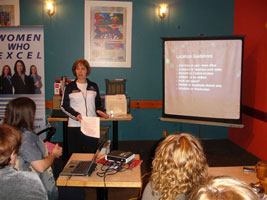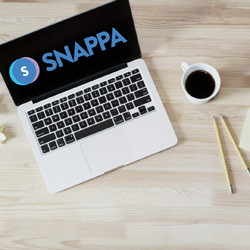Do You Play Well with Others? A look at cooperative competition

This page may contain links to Amazon.com or other sites from which I may receive commission on purchases you make after clicking on such links. Read my full Disclosure Policy
In my experience, most professional organizers are very happy to share resources and expertise with their colleagues and reap many rewards from doing so. I asked my client, Julie Stobbe, about her thoughts on the subject, and was so impressed that I invited her to share them here today as my guest blogger.

Coopetition occurs when companies work together for parts of their business where they do not believe they have competitive advantage and where they believe they can share common costs. (Source: Wikipedia)
Cooperating with someone in your line of business is a great way to get to know people, brainstorm and learn ideas and help each other with areas that you are weak in.
When I decided to try coopetition, I did it on a project basis. I used it to help me to market better, because marketing is not my strength.
I would think about something I would like to have (product development) or something I would like to do (offer a new service) and think about someone who had mentioned that they had an interest in the same thing. I would approach them with an idea and see if they were interested in working together to develop and implement the plan. It was nice to have a partner to walk the path with and hold my hand.
The payoff is having to do half the work while increasing business for both parties with the understanding that if they get busy and need help, they would approach me first, and I would do the same for them. If you develop a service with a partner, if someone gets sick, you have the other person as backup.  I always selected someone who lived east of my main marketing area. This made it easy to get materials delivered over a larger area – half the work, twice the area covered. This gave us both exposure to a larger market.
Here are some examples of projects I’ve worked on with people in my field and with complementary businesses:
- Developing organizing tip booklets; we have 4 different topics.
- Developing courses to offer to colleges, school boards and groups; we have 3 different 3 hour courses prepared.
- Advertising someone else’s electronic resources (because I don’t want to develop them at this time) in exchange for services.
- Advertising together so the cost of printing is shared by both companies.
- Recommending specialty services to clients, such as clutter removal service, rug cleaning, and website design.
- Inviting someone to attend new meetings and events with me. That way I don’t have to walk in alone, and perhaps they can make introductions too.
Although I have been fortunate and careful with whom I partner, there are always things to consider.
- The person you partner with now represents your company as well as their own. Make sure you have similar business ethics or your company’s reputation maybe adversely affected.
- If you are producing a product and the quality of what they produce is not up to your standards, you may be disappointed. However, you have both contributed time and money to the project so they may use it the way they want to.
- One of the companies may work much harder at marketing the product or service than the other company. Make sure that you can live with it if you realize that you are marketing them but they are not marketing you.
Overall, I have gained a lot from coopetition with others. I have grown as a business person, I have learned new skills, I have made good friends I can depend on, and I have learned to be flexible. I hope my coopetition partners have found me to be reasonable, supportive and hard working. Taking a chance to work with good people is really making a sure bet.
Do you have a “coopetition†story of your own? Please share it in the Comments. If you have any questions for Julie, please feel free to post them here as well.
Did you find this post helpful?
Share it with your network, and sign up to get new posts by email every week!











When I was an organizer, I collaborated with colleagues as a subcontractor, hiring a subcontractor, and in joint speaking engagements. Together we are stronger!
We can learn a lot from each other.
You’ve done a lot of collaborating, Julie! I love the examples you’ve shared. I’ve worked with members of my local NAPO Chapter on service projects, and am part of a team of three organizers who have come together to educate the community about organizing. I’m happy that we feel very much like a team and not so much like competitors. I think this works because the industry is still fairly new and there is plenty of business to go around. 🙂